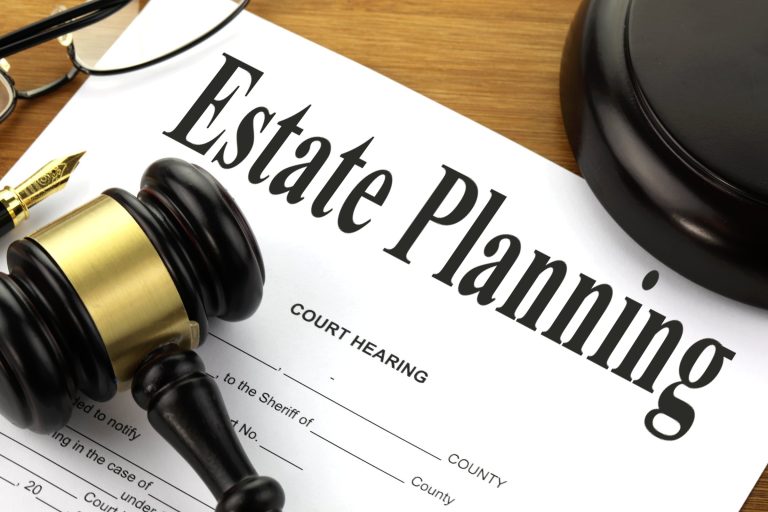Reviewing and Revising Estate Plans: Why It’s Essential and When to Do It
Table of Contents
Introduction
Reviewing and Revising Estate Plans is not just a one-time task you check off your list and forget. Life is full of unexpected twists and turns, and as it evolves, so should your estate plan. Whether it’s the joy of a new birth in the family, the sadness of a loss, or simply the passage of time, these events can significantly impact your initial plans.
In this guide, we’ll delve into the importance of periodic reviews, the influence of major life events, and the ever-changing landscape of laws and regulations. And remember, while the process might seem daunting, it’s all about ensuring your wishes are honored and your loved ones are taken care of.
The Importance of Regularly Reviewing Your Estate Plan
Imagine setting a GPS destination and then never updating the route despite road closures, new highways, or that newly opened ice cream shop you just have to visit. Your estate plan is similar. As life evolves, so should your preparations for the future. Without regular reviews, you risk leaving behind a legacy of confusion, potential legal battles, and missed opportunities to support loved ones.
Major Life Events That Should Trigger an Estate Plan Review
Life is a series of chapters. Some are filled with joy, like the birth of a grandchild or buying your dream home. Others might be more challenging, like navigating a divorce or the loss of a loved one. Each of these significant events can drastically change the landscape of your estate:
- Marriage or Divorce: Combining or dividing assets can significantly impact how you’d like them distributed in the future.
- Birth or Adoption: Welcoming a new family member often means ensuring they’re cared for, no matter what.
- Significant Asset Changes: Whether you’ve sold a property, started a business, or even won the lottery, these financial shifts can alter your estate’s distribution.
- Death of a Beneficiary or Executor: It’s essential to ensure that your estate plan reflects current relationships and trusted individuals.
The Need for Periodic Reviews Regardless of Life Changes
Even if you’ve had a relatively stable few years without significant life changes, it’s still wise to pull out that estate plan and give it a once-over every 3-5 years. Think of it as a health check-up but for your assets. Small changes can accumulate over time, and what was once a minor account could now be a significant asset.
Navigating the Changing Landscape: Laws and Regulations
The legal world is as dynamic as a soap opera plot. Laws evolve, tax regulations shift, and what was once a solid plan could now be riddled with potential pitfalls. By ensuring your estate plan aligns with current laws, you’re not only protecting your assets but also saving your beneficiaries from potential legal headaches down the road.
The DIY vs. Professional Review Debate
In the age of YouTube tutorials and DIY blogs, it’s tempting to think we can handle everything ourselves. And while there’s a certain pride in mastering a new skill, estate planning might be one area where professional guidance is invaluable. Sure, you can draft a basic will online, but a seasoned attorney can help navigate complex situations, tax implications, and ensure your wishes are legally sound.
The Role of Digital Assets in Modern Estate Planning
In today’s digital age, our online presence can be as significant as our physical one. From treasured family photos stored in the cloud to that small fortune in digital currencies, our digital assets need consideration in estate planning. Regularly updating provisions for these assets ensures they don’t get lost in the digital void.
The Subtle Art of Blogging About Estate Planning
Now, if you’ve made it this far, you might be thinking, “I’ve learned so much; maybe I should share my journey!” And why not? The year 2023 has shown us that with a sprinkle of dedication, a dash of knowledge, and the magic of AI, blogging can be both fulfilling and financially rewarding. So, as you navigate the complexities of estate planning, consider sharing your insights and experiences. After all, your story might just be the guide someone else needs.
Conclusion
Life is unpredictable, but with a regularly reviewed and revised estate plan, you can navigate its twists and turns with confidence. Whether you’re celebrating a joyous event or navigating a challenge, ensure your legacy is precisely as you intend it. And remember, while the journey is essential, it’s the peace of mind that truly counts.
Frequently Asked Questions
How often should I really review my estate plan if nothing significant changes?
Even without major life events, it’s a good practice to review your estate plan every 3-5 years. This ensures it aligns with any minor changes in your life and current laws.
Can I make changes to my estate plan myself?
While minor updates might be manageable, for significant changes or complex situations, it’s always best to consult with a professional.
Are there any digital tools to help with estate planning?
Yes, numerous online platforms can guide you through the basics. However, for a comprehensive plan, especially if you have significant assets or a complex family situation, seeking professional advice is recommended.
How do I ensure my digital assets are included in my estate plan?
Make a comprehensive list of all your digital assets, including passwords and access details. Discuss these with your attorney to ensure they’re adequately covered in your plan.
What exactly is considered a “digital asset” in estate planning?
A digital asset refers to any online account or electronic file. This can range from social media profiles, email accounts, and digital photos to more tangible assets like digital currencies or online investment accounts.
I’ve heard that laws regarding digital assets in estate planning can be tricky. Is this true?
Absolutely. Digital asset laws are still relatively new and can vary by jurisdiction. It’s essential to work with an attorney familiar with the latest regulations in your area to ensure your digital legacy is appropriately managed.
I’m not tech-savvy. Do I really need to include digital assets in my estate plan?
In today’s digital age, almost everyone has some form of digital footprint, even if it’s just an email account. Including these in your estate plan ensures that your loved ones can access or manage them according to your wishes.
Can’t I just leave a list of passwords for my family?
While leaving a list can be helpful, it’s not always legally sufficient. Some online platforms have specific terms of service that can complicate access, even if you provide your passwords.
It’s best to have both a legal plan and a list of passwords.
How do I handle digital assets that have monetary value, like cryptocurrency?
Cryptocurrencies and other digital assets with tangible value should be treated similarly to other valuable assets in your estate plan.
Ensure you provide clear instructions on accessing and managing these assets and consider any potential tax implications.
What happens to my social media profiles when I pass away?
Different platforms have various policies. Some, like Facebook, allow for “memorialization” of your account. Others may delete inactive accounts after a certain period.
It’s essential to specify in your estate plan how you’d like each profile handled, whether that’s deletion, memorialization, or passing control to a loved one.
Are there professionals who specialize in digital estate planning?
Yes, as the digital world has grown, so has the niche of digital estate planning.
Many estate planning attorneys now offer services specifically tailored to managing and protecting digital legacies.
How do changing laws and regulations affect my existing estate plan?
As laws evolve, provisions in your current estate plan might become outdated or non-compliant.
Regular reviews, especially after significant legal changes, ensure your plan remains valid and effective.








